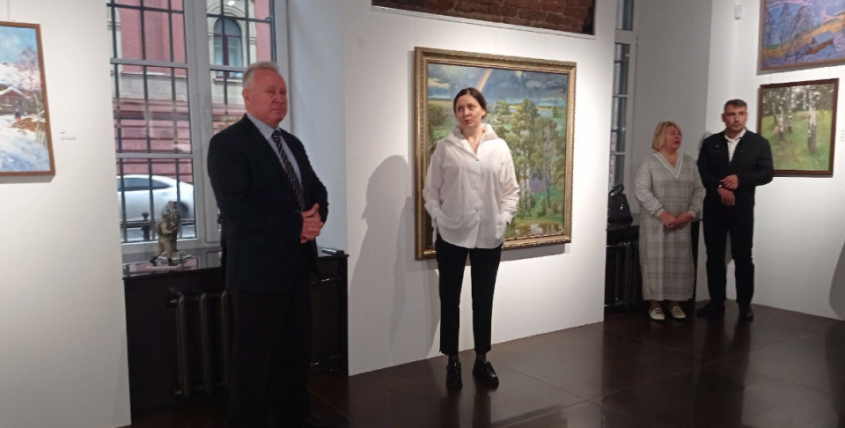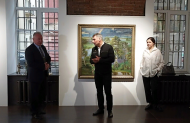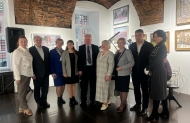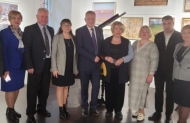
The settlements of Russia, Belarus and Mongolia - iconic places of courage and heroism of the fighters against fascism during the Second World War - will establish twin-city ties within the international project “Twin Cities - Victors”. This was announced in St. Petersburg at the presentation of the project, initiated by the Representative Office of the Eurasian Peoples' Assembly in the Leningrad region.
“The project allows us to unite settlements as places of courage and heroism of their defenders who fought in Belarus, Russia and Mongolia,” - said Deputy Secretary General of the Eurasian Peoples’ Assembly, Head of the Assembly’s Representative Office in the Leningrad Region, Yuri Palamarchuk, “We are talking about the settlements that will sign inter-municipal twinning agreements - this is Kamensky village settlement, where the memorial complex "Khatyn" (Belarus) is located; this is Shcheglovskoye village settlement in the Leningrad region, where the 136th Guards Division, which defended the besieged Leningrad and the Road of Life, was stationed; and also the settlement of Khalkhin-Gol, which is located in Mongolia.”
In the first ten days of December, the delegation of the Leningrad region plans to sign a twin city agreement with the Belarusian partner. And already in 2024, a signing with the Mongolian settlement-partner is planned; it is timed to coincide with the celebration of the 85th anniversary of the victory of the Soviet-Mongolian troops on the Khalkhin Gol River.
The project involves the interaction of museums and memorial complexes of the three countries.
“This is the Khatyn memorial complex in Belarus, we are negotiating with the Museum of the Defense and Siege of Leningrad and the G. K. Zhukov Museum in Ulaanbaatar, Mongolia,” - added Yuri Palamarchuk.
In St Petersburg, the key platform for the project is the “Imperial Society for the Encouragement of Arts” Foundation. Next year it plans to organize an exhibition of contemporary artists dedicated to the Great Patriotic War.
“The preservation of historical memory and historical justice, of course, is now one of the main tasks of our society. Today's event aims to do exactly that,” - Vladimir Zapevalov, a representative of the Russian Foreign Ministry in St. Petersburg, said at the presentation. He noted the ministry’s readiness to help with the implementation of initiatives within this project.





